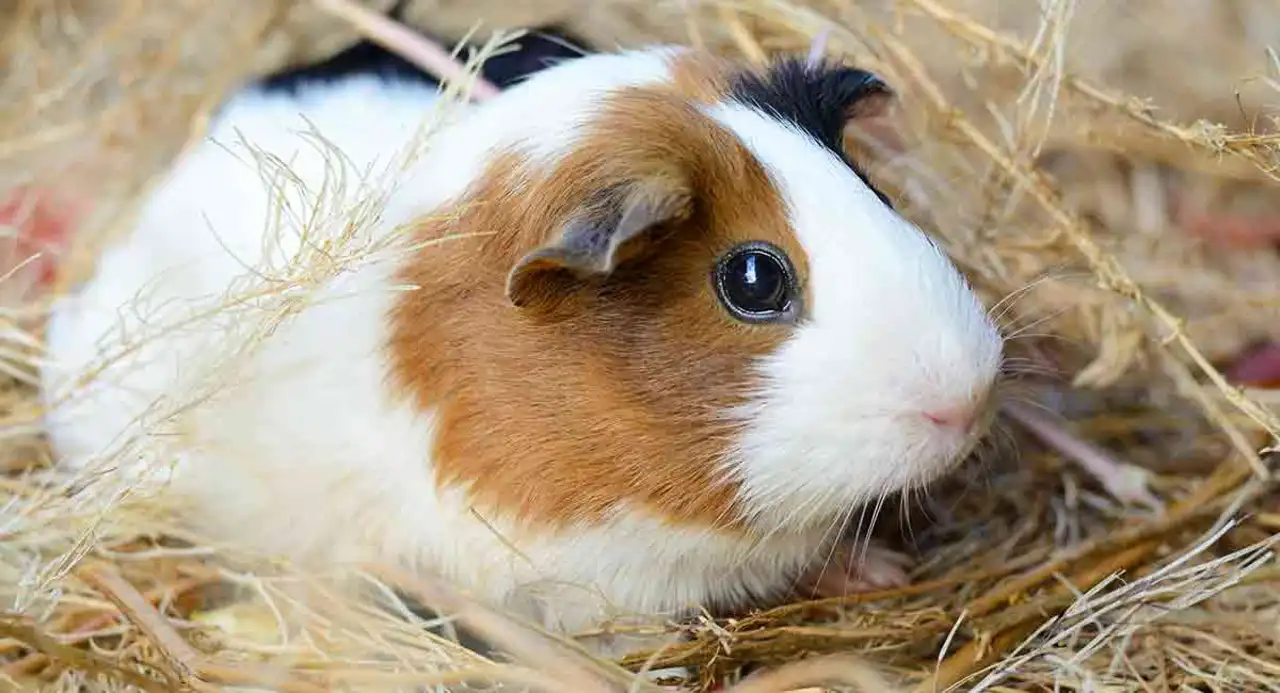Exploring the Average Lifespan of a Guinea Pig
Guinea pigs, or cavies, are beloved pet rodents and members of the Caviidae family. With their fluffy fur and friendly personalities, it's no wonder that people love to keep them as pets. But how long can guinea pigs live?
The average lifespan of a guinea pig is 5 to 6 years, though some can live up to 10 years. The breed of guinea pig, as well as its individual health, play a role in how long it will live. For example, a show-quality guinea pig may live longer than an average pet guinea pig.
The key to a guinea pig's longevity is proper care. A guinea pig should have access to a diet rich in vegetables and hay, as well as plenty of fresh water. A guinea pig should also get plenty of exercise, both indoors and outdoors. Exercise helps keep the guinea pig active and healthy.
A clean and comfortable living environment is also essential for a guinea pig's long life. The cage should be kept clean and dry, and the bedding should be changed regularly. The temperature in the cage should not be too hot or too cold, and the guinea pig should have plenty of bedding and hideouts.
Finally, regular veterinary visits are important for a guinea pig's long life. A veterinarian can provide essential care, such as vaccinations and parasite control, and can help identify any health issues. This can help ensure that a guinea pig lives a long and healthy life.
Maximizing the Longevity of Your Guinea Pig
Guinea pigs are a popular pet choice in many households. They are small, cute, and relatively easy to care for. One of the most common questions asked by guinea pig owners is: 'How long can guinea pigs live?'
The average lifespan of a guinea pig is 5-7 years. However, with proper care and nutrition, guinea pigs can live longer. By providing your guinea pig with a healthy diet, proper exercise, and regular veterinary visits, you can increase its life expectancy.
A guinea pig's diet should consist of hay, fresh vegetables, and a small amount of pellets. It is important to ensure that your guinea pig is getting the necessary vitamins and minerals that it needs to survive. You can also supplement their diet with fresh fruit and other treats.
It is also important to provide your guinea pig with plenty of exercise. A guinea pig's cage should be large enough for it to move around and explore. It is also important to allow your guinea pig out of its cage for regular playtime.
Finally, it is important to take your guinea pig to the vet for regular checkups. Your vet can check for any signs of illness or injury and can provide advice on proper care and nutrition.
By following these simple steps, you can help your guinea pig live a longer and healthier life. With proper care and nutrition, your guinea pig can live up to 10 years or more.
Understanding the Factors that Affect Guinea Pig Longevity
Guinea pigs are small animals, but they can live for a surprisingly long time. The average lifespan of a guinea pig is between 4 and 8 years, but some guinea pigs can live for up to 10 years. To ensure your guinea pig has the longest, happiest life possible, it’s important to understand the factors that can influence their lifespan.
Diet
Diet is one of the most important factors in a guinea pig’s longevity. A guinea pig’s diet should include hay, fresh vegetables, and a small amount of pellets. You should also provide fresh water on a daily basis. A balanced diet ensures that your guinea pig is getting the nutrients they need to stay healthy and strong. Avoid feeding your guinea pig sugary treats, as this can lead to health issues and can shorten their life.
Exercise
Guinea pigs need to stay active to remain healthy. Providing your guinea pig with plenty of room to run and play is essential for their physical and mental health. You should also make sure to provide your guinea pig with toys and chew sticks to keep them entertained. Exercise helps guinea pigs stay strong, which can help them live longer.
Health Checkups
Regular health checkups are important for guinea pigs. Your vet can check for common guinea pig health issues and can provide treatment if necessary. Early detection of health issues can help your guinea pig live longer. You should take your guinea pig to the vet at least once a year for a checkup.
Environment
The environment your guinea pig lives in can have a major impact on their life expectancy. You should make sure your guinea pig’s living space is clean and comfortable. Provide them with plenty of soft bedding and a hiding spot for when they feel stressed or scared. The temperature of the room should also be kept cool, as guinea pigs are sensitive to heat. A comfortable environment will ensure your guinea pig lives a long and happy life.
Common Health Issues in Guinea Pigs and How to Prevent Them
Guinea pigs are long-lived creatures, and can live up to 8 years when given proper care and nutrition. However, because of their long life span, guinea pigs are prone to developing certain health problems that can affect their lifespan and quality of life. Here are some of the most common health problems that guinea pigs can suffer from, as well as ways to prevent them.
Respiratory Infections
Respiratory infections are one of the most common health problems that guinea pigs can suffer from. These infections can be caused by bacteria, viruses, or a combination of both. Symptoms of respiratory infections include sneezing, coughing, nasal discharge, and difficulty breathing. To prevent respiratory infections, make sure your guinea pig is in a clean environment, and keep the cage away from other animals and drafts.
Diarrhea
Diarrhea can be caused by a number of things, such as a change in diet, stress, or an infection. Symptoms include watery and frequent stools, as well as increased thirst. To prevent diarrhea, make sure your guinea pig is always on a balanced diet, and keep their environment stress-free. If your guinea pig is already suffering from diarrhea, make sure to take them to the vet right away.
Mites
Mites are another common problem in guinea pigs. These tiny parasites can cause skin irritation and even infections. Symptoms of mites include reddened skin, itching, and hair loss. To prevent mites, keep your guinea pig's cage clean and regularly check for signs of mites. If you suspect your guinea pig has mites, take them to the vet for proper diagnosis and treatment.
Osteodystrophy
Osteodystrophy, also known as vitamin C deficiency, is another common health problem in guinea pigs. This condition is caused by a lack of vitamin C in the diet, and can lead to severe health problems if left untreated. Symptoms of osteodystrophy include weight loss, a reluctance to move, and joint pain. To prevent osteodystrophy, make sure your guinea pig is getting enough vitamin C in their diet. Additionally, provide them with plenty of fresh vegetables, fruits, and hay.
Overweight
Being overweight can lead to a variety of health problems in guinea pigs, including heart disease, diabetes, and even joint problems. To prevent your guinea pig from becoming overweight, make sure they are getting enough exercise and only feeding them a balanced, low-calorie diet. Additionally, make sure not to feed your guinea pig too many treats, as this can contribute to weight gain.
Injury
Injuries can occur in guinea pigs, especially when they are kept in a small cage or enclosure. To prevent your guinea pig from sustaining any injuries, make sure their cage or enclosure is large enough for them to move around freely. Additionally, make sure to keep sharp objects such as wires or nails away from your guinea pig as they can easily get injured by them.
Comparing the Lifespans of Different Breeds of Guinea Pigs
Guinea pigs are delightful small animals that can be the perfect pet for many households. They are quite low maintenance, and can be friendly and loving creatures. However, one of the most important things to consider when getting a guinea pig is how long they are likely to live. Different breeds will have different lifespans, so it’s important to do your research and make sure you understand how long your guinea pig will be around for.
On average, a guinea pig can live for around 4 to 8 years, although some breeds may live longer or shorter. The Silkie breed has an average lifespan of 5 to 7 years, while the Peruvian breed can live for up to 8 years. A Sheltie breed typically lives for 6 to 8 years, while an American breed has an average lifespan of 5 to 7 years. The Teddy breed usually has a lifespan of 4 to 6 years.
It is also important to remember that a guinea pig’s lifespan can be affected by its environment. If your guinea pig is kept in a clean and hygienic environment, it is likely to live longer. Also, keeping your guinea pig’s food and water bowl clean and full will help to ensure that it lives a full and healthy life.
In addition to the breed of the guinea pig, the age of the guinea pig when you get it can also have an effect on its lifespan. An older guinea pig may not live as long as a younger guinea pig, so it is important to consider the age of the guinea pig when deciding which one to get. The health of the guinea pig is also a factor to consider. If your guinea pig is healthy and well looked after, it is more likely to live a long and happy life.
In conclusion, the lifespan of a guinea pig will depend on the breed and the age of the guinea pig when you get it. It is also important to ensure that your guinea pig is kept in a clean and hygienic environment, and is well looked after, in order to ensure that it lives a long and happy life. If you are considering getting a guinea pig, make sure you do your research and understand the lifespan of the breed you are thinking of adopting.

